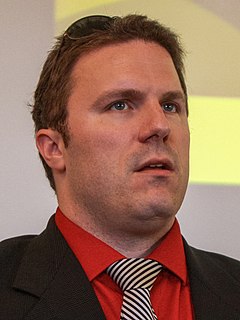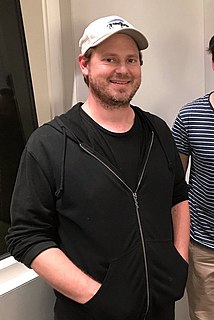A Quote by James Q. Wilson
[in 1998] I know my political ideas affect what I write but I've tried to follow the facts wherever they land. Every topic I've written about begins as a question. How do police departments behave? Why do bureaucracies function the way they do? What moral intuitions do people have? How do courts make their decisions? What do blacks want from the political system? I can honestly say I didn't know the answers to those questions when I began looking into them.
Quote Topics
About
Affect
Answers
Began
Begins
Behave
Blacks
Courts
Decisions
Departments
Every
Facts
Follow
Function
Honestly
How
Ideas
Know
Land
Looking
Make
Moral
People
Police
Police Department
Political
Political System
Question
Questions
Say
System
Them
Those
Topic
Tried
Want
Way
Wherever
Why
Write
Written
Related Quotes
I won't call my work entertainment. It's exploring. It's asking questions of people, constantly. 'How much do you feel? How much do you know? Are you aware of this? Can you cope with this?' A good movie will ask you questions you don't already know the answers to. Why would I want to make a film about something I already understand?
I want people to think about movies and how we watch them. Let them know it's okay to question the structure or how we're sometimes duped into a false sense of normalcy. Most of all, I want people to question the old standard practices of, 'This is how the structure of something should work,' or, 'This is how a character must behave.'
When I see an entire community disenfranchised, it disturbs me. Not that I'm a message guy, per se. I write about people. I like to write about human beings, not crap political rhetoric. I've tried to avoid that all my life. When I wrote about soldiers in Vietnam, I wasn't trying to make a political statement. I was trying to write about how screwed things were for soldiers, and how they still are.
Every time I think that political analysts and writers will finally recognize that most of them don't understand much about political polls, they prove me wrong. They don't know how to read them; they don't understand the importance of cross tabs within a given poll, and they don't know how to analyze them.
In our society, real power does not happen to lie in the political system, it lies in the private economy: that’s where the decisions are made about what’s produced, how much is produced, what’s consumed, where investment takes place, who has jobs, who controls the resources, and so on and so forth. And as long as that remains the case, changes inside the political system can make some difference-I don’t want to say it’s zero-but the differences are going to be very slight.
The cool thing about Watchmen is it has this really complicated question that it asks, which is: who polices the police or who governs the government? Who does God pray to? Those are pretty deep questions but also pretty fun questions. Kind of exciting. It tries to subvert the superhero genre by giving you these big questions, moral questions. Why do you think you're on a fun ride? Suddenly you're like how am I supposed to feel about that?
What happened on "As Cool As I Am" was, you know how in the `90s, "the personal is political, the political is personal"? That was a really big thing. Choices you made about how you recorded and what instruments you used and how much real versus how much synthetic. Those were choices that were seen as very political at the time.
But in the end, science does not provide the answers most of us require. Its story of our origins and of our end is, to say the least, unsatisfactory. To the question, "How did it all begin?", science answers, "Probably by an accident." To the question, "How will it all end?", science answers, "Probably by an accident." And to many people, the accidental life is not worth living. Moreover, the science-god has no answer to the question, "Why are we here?" and, to the question, "What moral instructions do you give us?", the science-god maintains silence.
I’m curious about things that people aren’t supposed to see—so, for example, I liked going to the British Museum, but I would like it better if I could go into all the offices and storage rooms, I want to look in all the drawers and—discover stuff. And I want to know about people. I mean, I know it’s probably kind of rude but I want to know why you have all these boxes and what’s in them and why all your windows are papered over and how long it’s been that way and how do you feel when you wash things and why don’t you do something about it?


































